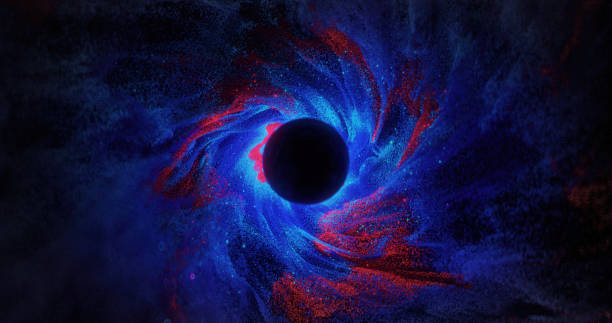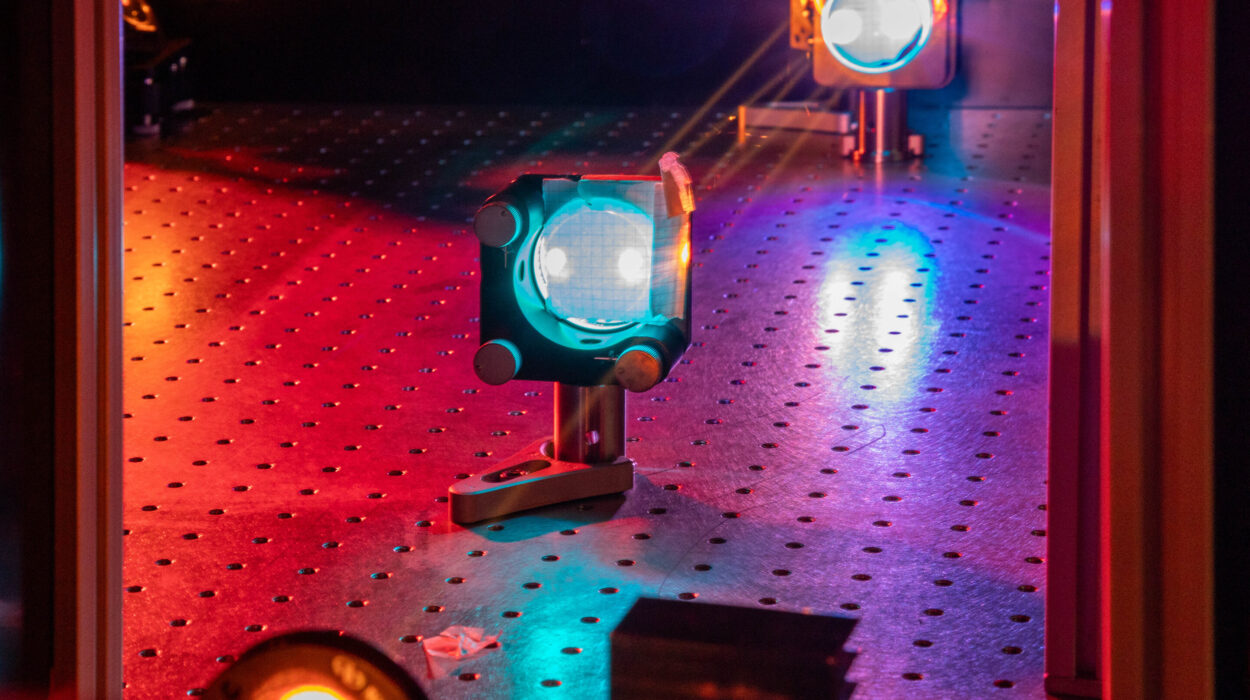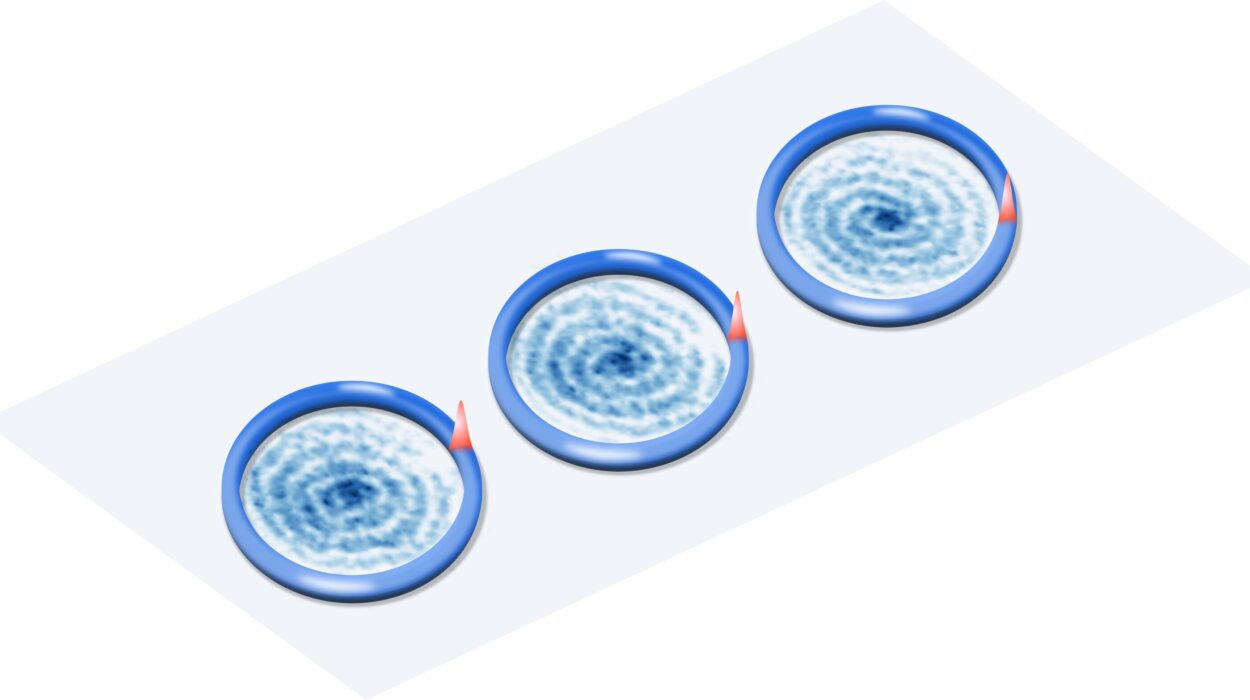Imagine this: you’re walking down the street, minding your own business, when a primordial black hole—a cosmic remnant from the early universe—decides to take a stroll through your body. It sounds like something straight out of a science fiction thriller, but Professor Robert Scherrer, a physicist from the International Journal of Modern Physics D, has posed a fascinating question: what exactly would happen if a small black hole passed through a human being?
This isn’t the plot of a new blockbuster; it’s an investigation into one of the deepest mysteries of our universe—the nature of dark matter. Scherrer’s study sheds light on how a primordial black hole, a mysterious and hypothetical object formed shortly after the Big Bang, might interact with the human body. His findings may help scientists better understand dark matter, one of the universe’s most elusive phenomena.
From the Big Bang to Your Body
Before we dive into the dangers of an encounter with a black hole, let’s take a step back. What is a primordial black hole, and why would it matter to us today?
Primordial black holes are thought to have formed in the first moments after the Big Bang, potentially within the first second of the universe’s existence. Unlike the supermassive black holes found at the centers of galaxies, these tiny objects could have been born out of the extreme conditions of the early universe. They are hypothetical, and their masses could range from being 100,000 times smaller than a paperclip to 100,000 times more massive than the Sun.
The intrigue around primordial black holes lies in their potential connection to dark matter. This invisible and mysterious substance makes up most of the mass in the universe, yet we can’t see it or detect it directly. Some researchers speculate that primordial black holes could be a significant component of dark matter, and Scherrer’s research may help us better understand them.
The Physics of a Black Hole Encounter
Scherrer’s curiosity was piqued by an old science fiction story from the 1970s, where a character meets an untimely death when a black hole passes through them. While that may seem like the stuff of fantasy, Scherrer wondered if there was any scientific basis to this idea. Could the gravitational forces from a small black hole really cause harm if it passed through a human body?
In his article, Scherrer builds on previous research that explored the effects of macroscopic dark matter, a broader class of hypothetical dark matter that is larger in size and made up of many particles. In these studies, Scherrer and his collaborators found that such objects would indeed cause significant damage if they interacted with the human body. The possibility that primordial black holes could cause similar destruction, while still theoretical, prompted Scherrer to explore the gravitational effects of these strange objects.
Shock Waves and Gravitational Forces
So, what would happen if a primordial black hole passed through you? Scherrer identifies two primary effects: supersonic shock waves and tidal gravitational forces.
First, imagine the black hole moving faster than the speed of sound—a supersonic shock wave would form in its wake. This shock wave, a powerful disturbance in the fabric of space, would behave somewhat like a bullet tearing through the body. As the black hole moves through tissue, it would create a cone-shaped shock wave, destroying cells and tissues along its path. The speed and intensity of this shock wave would likely lead to severe injury or death.
But the dangers don’t stop there. The second effect is more subtle but potentially just as devastating: tidal gravitational forces. These forces occur when there is a difference in the strength of gravity between two points. In the case of a black hole passing through the body, the difference in gravitational pull between the front and back of a human being could be immense. This difference would stretch and tear materials apart, including the cells of the human body. The most vulnerable to this force? The delicate cells in the brain, which are far more sensitive to extreme gravitational differences than other types of cells.
While these effects may sound terrifying, Scherrer points out that such an event is not likely to be a real cause for concern—at least, not anytime soon.
Should We Worry?
As unsettling as the scenario may sound, there is little need to add “death by primordial black hole” to your list of everyday fears. In fact, Scherrer himself is quick to downplay the likelihood of an encounter with such a black hole.
“Primordial black holes are theoretically possible, but they might not even exist,” Scherrer notes. “A sufficiently large primordial black hole, about the size of an asteroid or larger, would cause serious injury or death if it passed through you. It would behave like a gunshot. A smaller primordial black hole could pass through you, and you wouldn’t even notice it. However, the density of these black holes is so low that such an encounter is essentially never going to happen.”
In simpler terms, while the physics behind the idea of a black hole passing through you is fascinating, the actual chances of it happening are almost nonexistent. The density of primordial black holes is so low that even if they do exist, they are incredibly sparse—far too rare for any of us to experience a run-in with one.
Why This Research Matters
Despite the unlikely chance that you’ll encounter a primordial black hole on your morning walk, Scherrer’s research carries important implications for the future of physics and our understanding of dark matter. The study of primordial black holes helps us probe the fundamental properties of the universe, especially those that remain hidden in the mysterious realm of dark matter. By understanding the gravitational effects of these objects on human bodies, scientists can gain insight into their mass and other characteristics, which in turn could help us refine our theories of dark matter.
In essence, this research is not just about the cosmic horrors of black holes passing through people—it’s about better understanding the forces that shape our universe. And although we may never face a black hole in our lifetime, the pursuit of knowledge in this area could unlock the secrets of the cosmos, bringing us one step closer to solving the riddle of dark matter and the universe’s deepest mysteries.
For now, though, you can rest easy. While we’re all safe from black holes in our immediate vicinity, the search for answers to the universe’s greatest questions is anything but boring.
More information: Robert J. Scherrer, Gravitational effects of a small primordial black hole passing through the human body, International Journal of Modern Physics D (2025). DOI: 10.1142/s0218271825410032






